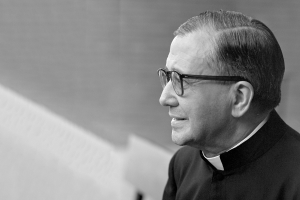Will Pope Francis listen to voices calling for change in the church?
Media coverage of the election of Pope Francis has returned over and over to his humility and simplicity, noting a bit obsessively his choice of regular black shoes over Pope Benedict’s red ones. Left for now is another, more serious question about Pope Francis’ new direction: When the honeymoon is over, how will he approach the difficult issues facing the church, especially Catholics who advocate change?
Enter Father Tony Flannery, an Irish Redemptorist priest and founder of the Irish reform group the Association of Catholic Priests (ACP), who in January broke the silence demanded of him by the Congregation for the Doctrine of the Faith (CDF) by writing an op-ed for the Irish Times about his interactions with the Vatican over his work with the ACP.
“Either I sign a statement, for publication, stating that I accepted teachings that I could not accept,” Flannery wrote, “or I would remain permanently banned from priestly ministry.”
Flannery does not specify which church teachings he must assent to, but the ACP has largely been centered on the lack of consultation around the new English translation of the Roman Missal. While Flannery notes that the original statement he was asked to provide regarded his understanding of the divine institution of the church, the priesthood, and the Eucharist, he says the CDF later added the matters of women’s ordination and the church’s “moral teaching,” despite the fact he hadn’t raised those issues in his public statements.
Either way, Flannery says that he cannot accept the Vatican’s demands and now awaits his fate.
Some will counsel Flannery to be “obedient” and sign whatever Rome asks of him, regardless of his conscience, regardless of whether debating a liturgical translation could be a matter of such gravity.
Yet Catholic tradition in general argues against sacrificing the judgments of one’s conscience to any authority, even church authority, as Thomas Aquinas says in his Summa Theologiae. Flannery himself invokes the Second Vatican Council’s Declaration on Religious Freedom: “in religious matters, every form of coercion by men should be excluded.”
As for obedience, Swiss Abbot Martin Werlen, a member of the Swiss bishops’ conference, published a prophetic sermon in late 2012 stating that it is also possible for church authority to be “disobedient” if it refuses to listen—the root meaning of “obey”—to the faithful, including clergy and religious. “The disobedience deplored by church officials is often the consequence of those very church officials’ own disobedience,” Werlen said, speaking of the upheaval in the German-speaking churches, including a “call to disobedience” issued by a large group of priests. “Whoever has responsibility in the church must above all be one who hears and obeys,” he said later.
This failure to listen is, to my ears, the correct diagnosis of the difficulties the church and the new bishop of Rome now face. While the Second Vatican Council insists in Lumen Gentium that the baptized “by reason of the knowledge, competence, or outstanding ability which they may enjoy” should express their opinions on the needs of the church “through the organs erected by the church for this purpose,” there simply are too few official structures of listening to the movement of the Spirit among God’s people—including priests. Those that do exist are merely advisory, and, short of a diocesan finance council, a bishop is under no obligation to use them.
While it is hard to know how the new pope will approach matters of conscience and obedience, he did give an interesting signal when he blessed the press covering the Vatican after his election.
Noting that many in the room weren’t believers, he said, “I give this blessing from my heart, in silence, to each one of you, respecting the conscience of each one of you, but knowing that each one of you is a child of God.” Let us hope he is guided by such lights as he encounters Catholics whose conscience leads them to advocate for change in the church.
This article appeared in the May 2013 issue of U.S. Catholic (Vol. 78, No. 5, page 8).
Image: iStock photo/4FR













Add comment